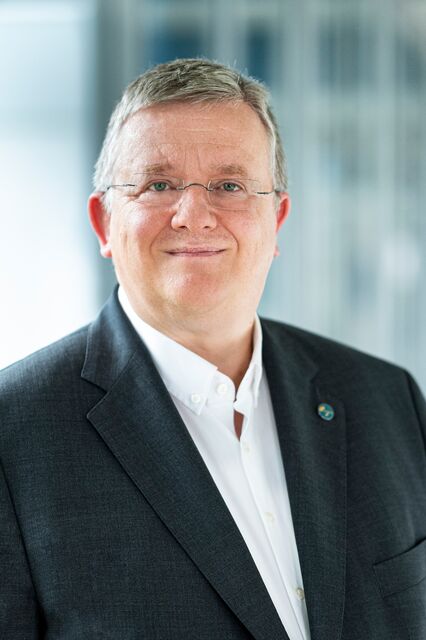Labor Market
The right labor market policy for more competitiveness

Competitiveness, growth and job security require adaptability, value creation based on the division of labour and a flexible labour market. Digitalisation requires modern framework conditions for Work 4.0.
More flexibility must be given to companies and individuals. In the future, blanket legal regulations will be even less likely to be the right answers to the new challenges.

shutterstock


The pension package with additional expenditure envisaged by Labor Minister Bas does not solve any of the problems, but rather increases them. Companies and employees need serious structural reforms.
Non-wage labor costs must be significantly reduced, only then can more employment be expected. this requires a real structural reform in the social security branches.
The EU and the United Kingdom have decided to enter into a dialog on the entry and stay of persons for business purposes. The VDMA hopes that this will facilitate work assignments in the United Kingdom.
Companies in Germany urgently need relief, also in terms of labor market regulations. Switching to a maximum weekly working time would be an important step towards more flexibility.
Germany brings up the rear of the industrialized nations in terms of forecast economic growth. Reforms are also needed in the labor market, which can be perceived as painful.
No economic growth, an ageing society and rising expenditure and contributions: The challenges in labor market and social policy could hardly be greater.
The future of pension funding is the biggest gap in the coalition agreement between the CDU/CSU and SPD. Unpopular measures are also needed to make pensions fit for the future.
The labor market is sending a clear signal: structural reforms are needed now instead of further social benefits, even if they may be unpopular.
To ensure the competitiveness of the mechanical and plant engineering industry, the VDMA is calling for reliable economic framework conditions. A strong industry means a strong economy.
The parties to the collective agreement in the M E industry in Baden-Württemberg have concluded a collective agreement that enables companies to lend employees to each other in order to avoid short-time working or redundancies.
IG Metall wants to secure industrial jobs by giving preference to companies bound by collective agreements. This is the wrong approach.
The mechanical engineering sector is feeling the effects of the recession - yet companies only reduced their workforce by just under 1% in 2024. Even now, the core workforce is to be retained as much as possible.
The Federal Ministry for Family Affairs, Senior Citizens, Women and Youth (BMFSJ) has commissioned a special study on the issue of father-friendliness in mechanical and plant engineering as part of the "Success Factor Family" corporate program.
Employment in the mechanical and plant engineering sector is also expected to fall slightly this year. This makes it all the more important to reduce labor costs now.
Less bureaucracy, a maximum tax rate of 25% and an efficient infrastructure are essential to ensure competitiveness. Germany will only remain a strong industrial location through bold reforms.
The VDMA calls for a labor market policy that secures skilled workers, recognizes performance, offers flexibility, and thereby stabilizes our social systems.
On January 1, 2025 and over the course of the next year, a number of changes will be made to the labor market.
On December 18, 2024, the Federal Cabinet decided to extend the period of entitlement to short-time working allowance.
Structural changes are needed, not the expansion of expensive special formats. The extension of the short-time working allowance is a political mistake.
Competitiveness, growth and a long-term supply of labor and skilled workers require adaptability, a flexible labor market and a future-proof social security system.
NORDMETALL and the Bavarian Metal and Electrical Industry Association (vbm) reached a pilot agreement with the IG Metall districts on the coast and Bavaria on November 12, 2024.
The German government wants to create incentives to work longer. However, the necessary major reforms are lacking. A new report by the IMPULS Foundation points the way forward.
In industry, employment subject to social security contributions continues to decline. If you want to secure industrial jobs, you have to reduce the burden of social security contributions.
Professional and personalised application management still has plenty of room for improvement in many cases. Low-threshold application processes (such as via WhatsApp) are an interesting new development.
Current VDMA survey: Only 30 percent of the companies surveyed are bound by collective agreements. Companies not bound by collective agreements see too little scope for company solutions and a lack of flexibility in collective agreements.
Germany needs structural changes to its social insurance systems. Higher contributions are not the solution.
The planned amendment to the Residence Act is complicated and legally questionable. It would be simpler to remove the ban on temporary employment agencies in the immigration of skilled workers.
The contribution increases announced in Pension Package II mean further burdens for the economy. The younger generations and employers are expected to solve problems that politicians are not addressing strategically.
Together with other business and employers' associations, the VDMA has sent a letter to Federal Minister of Labor Hubertus Heil in which they make it clear that they reject political intervention in the setting of the minimum wage.
Good salaries are paid in mechanical engineering - even in companies without collective bargaining agreements. A collective bargaining law would only be another unnecessary burden.
On November 14, 2024, the VDMA and the Corporate Learning Community are organizing a BarCamp on the topic of "Artificial Intelligence in the World of Work" in Frankfurt am Main.
In view of the shortage of skilled workers, incentives to work longer are very welcome in the mechanical engineering sector. However, the planned "pension deferral bonus" is far too complex.
Employment subject to social insurance contributions in industry is falling significantly. All the more reason why political reforms are now needed to kick-start the growth initiative.
5,200 jobs have been lost in mechanical and plant engineering since the beginning of the year. Nevertheless, the shortage of skilled workers remains high due to the demographic challenge. What is needed now are structural reforms to secure skilled workers.
In a public position paper, the German Trade Union Confederation (DGB) calls for an increase in collective bargaining coverage through legal measures.
The labor market figures are bad. The federal government must finally move from debate to action. Implementing the growth initiative has top priority.
On July 5, 2024, the Federal Council approved the Second Act Amending the Works Constitution Act. This means that the more specific regulations on the remuneration of works council members can come into force.
BAVC and IGBCE have agreed on a two-stage wage package that guarantees companies planning security until the first quarter of 2026.
NRW's mechanical and plant engineering sector is not only suffering from the effects of global challenges, but also from the implementation of EU regulations, excessive bureaucracy and a lack of planning security.
The German Federal Ministry of Labor and Social Affairs (BMAS) published a draft law on the recording of working hours on April 18, 2023. This has not yet been approved by the coalition.
Change is needed in various areas of education and working life to attract more women to technical professions. The latest study by the VDMA's Impuls Foundation investigates exactly what is needed. For the first time, the study focuses on the link between studies, career entry and the first years of employment for female engineers.
Too few women choose this career path as an engineer because technical job descriptions are often unclear. Prevailing role models and clichés need to be cleared up.
The number of vacancies for engineers in the mechanical engineering sector has reached a new high and demand will continue to grow. Currently, two out of three companies have engineering vacancies to fill.
The German mechanical and plant engineering sector is no exception: collective bargaining remains virtually unchanged at a low level. According to a VDMA survey conducted in June 2022, 31 percent of mechanical engineering companies are bound by a regional collective agreement. Two years ago, the figure had been 29 percent. The traffic light coalition wants to push collective bargaining - to the detriment of companies that are not bound by collective agreements. The VDMA sees this as a violation of the freedom of association enshrined in the German constitution.
The mechanical and plant engineering sector is a driver of digital and sustainable production. Its well-trained employees - more than one million in Germany alone - make a major contribution to quantitative and qualitative growth around the world. But an increasing shortage of skilled workers threatens to put the brakes on this success. In addition to a sustainable education policy, the solution to the problem must above all include a good labor market policy that focuses on flexibility.
The design of economic policy framework conditions is of central importance for the future viability of the state, as well as for the economic success of mechanical and plant engineering. A conversation with Prof. Dr. Lars Feld, Director of the Walter Eucken Institute and former head of the Economic Experts.
Mechanical and plant engineering is the solution provider on the road to climate neutrality. The targets set before the election are ambitious. They can only be achieved with market-based instruments and further economic growth. Decarbonization is only possible with and not against industry, and policymakers must take into account the central technological and economic importance of small and medium-sized industrial enterprises for the transformation.
Corona is making it particularly difficult for mechanical engineering companies to meet their demand for skilled workers. But even without the pandemic, the challenge to companies and policymakers to find qualified young talent is growing.
Mechanical and plant engineering creates the technological prerequisites for the desired transformation of the economy and society.
In the daily political debate, good arguments are the be-all and end-all. In the VDMA's brief positions you will find short statements on current controversial issues.
Events
VDMA partners



.jpg/68a74a47-48fd-5f76-fe75-e159213bbb85)







